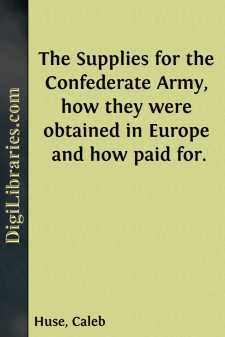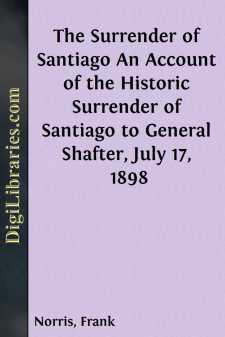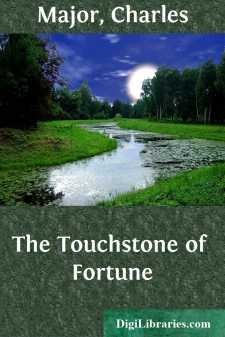History
- Africa 30
- Americas (North Central South West Indies) 50
- Ancient 68
- Asia 58
- Australia & New Zealand 8
- Canada 41
- Caribbean & West Indies 1
- Civilization 20
- Eastern Europe 12
- Europe 310
- Expeditions & Discoveries 60
- General 77
- Historical Geography 1
- Jewish 9
- Latin America 3
- Medieval 8
- Middle East 13
- Military 248
- Revolutionary 8
- Study & Teaching 5
- United States 353
- Western Europe 56
- World 13
History Books
Sort by:
The Sunny Side of Diplomatic Life WASHINGTON, 1875-1880 WASHINGTON, November, 1875. Dear Mother,—After my hurriedly written letter of the 24th you will know that we have arrived here safely. My first introduction to my first post as diplomat's wife was made unwittingly by a gentleman walking with a friend just behind me. "Who is that gentleman?" said he, indicating Johan. "That? That...
more...
by:
Caleb Huse
REMINISCENCES my return in May, 1860, from a six months' leave of absence spent in Europe, I found an appointment as professor of chemistry and commandant of cadets in the University of Alabama awaiting my acceptance. During my absence the President of the University and a committee of the Board of Trustees visited West Point and the Virginia Military Institute and, pleased with the discipline of...
more...
Chapter I INTRODUCTORY.1. Plan of the Monograph.2. The Rise of the English Slave-Trade.1. Plan of the Monograph. This monograph proposes to set forth the efforts made in the United States of America, from early colonial times until the present, to limit and suppress the trade in slaves between Africa and these shores. The study begins with the colonial period, setting forth in brief the attitude of...
more...
by:
Frank Norris
THE SURRENDER OFSANTIAGO or two days we had been at the headquarters of the Second Brigade (General McKibben's), so blissfully contented because at last we had a real wooden and tiled roof over our heads that even the tarantulas—Archibald shook two of them from his blanket in one night—had no terrors for us. The headquarters were in an abandoned country seat, a little six-roomed villa, all on...
more...
PREFACE. NO name in history lies deeper in Swedish hearts than the name Gustavus Vasa. Liberator of Sweden from the yoke of Denmark, and founder of one of the foremost dynasties of Europe, his people during more than three centuries have looked back fondly to the figure of their great ruler, and cherished with tender reverence every incident in his romantic history. This enthusiasm for Gustavus Vasa is...
more...
I SOME PRELIMINARY CONSIDERATIONS Assumptions as to the teacher of history This monograph will make no attempt to analyze the personality of the ideal teacher. It is assumed that the teacher of history has an adequate preparation to teach his subject, that he is in good health, and that his usefulness is unimpaired by discontent with his work or cynicism about the world. It is presupposed that he...
more...
by:
John Falstaffe
INTRODUCTION The Theatre, by "Sir John Falstaffe", is according to its author a continuation of Richard Steele's periodical of the same name. Shortly after Steele brought his paper to a close on April 5, 1720, the anonymous author who called himself "Falstaffe" appropriated his title; or if we prefer Falstaffe's own account of the matter, he was bequeathed the title upon the...
more...
The present is the best collected edition of the important works of Schiller which is accessible to readers in the English language. Detached poems or dramas have been translated at various times since the first publication of the original works; and in several instances these versions have been incorporated into this collection. Schiller was not less efficiently qualified by nature for an historian...
more...
by:
Charles Major
CHAPTER I DAUGHTERS AND POVERTY Goddess Fortune seems to delight in smiling on a man who risks his all, including life, perhaps, on a desperate chance of, say one to one hundred. If her Ladyship frowns and he loses, his friends call him a fool; if he wins, they say he is a lucky devil and are pleased to share his prosperity if he happens to be of a giving disposition. Lucky? No! He has simply minted...
more...
by:
Walter Runciman
CHAPTER I THE ABODE OF DARKNESS In Clause 2 of his last will, dated Longwood, April 15, 1821, the Emperor Napoleon states: "It is my wish that my ashes may repose on the banks of the Seine, in the midst of the French people whom I have loved so well." At London, September 21, 1821, Count Bertrand and Count Montholon addressed the following letter to the King of England:— "SIRE,—We now...
more...











